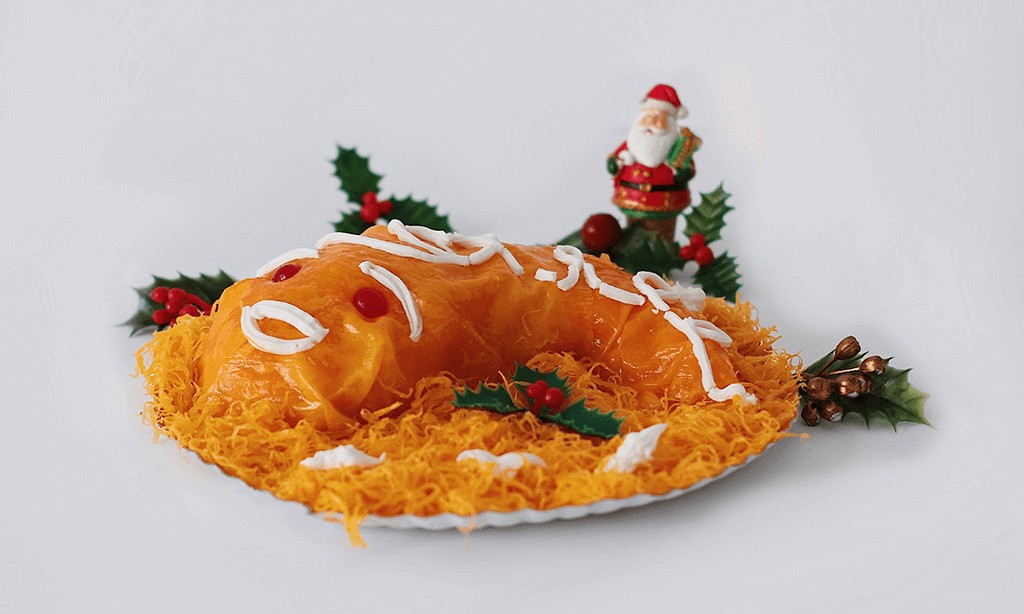Christmas in Portugal has similar traditions as the United States.

As a nation where many Christians reside and have lived for many generations, Christmas is recognized as the Birth of Jesus. Epiphany is also celebrated, which takes place on January 6.
Jump to:
What Do The Portuguese Eat On Christmas?
Christmas in Portugal comes with many get-togethers, and when folks get together, there is always food!
The primary meal takes place on Christmas Eve prior to Midnight Mass. The meal is called Consoada, and the primary dishes are as follows:
- Salted cod served with green vegetables
- Boiled potatoes and boiled eggs
- Shellfish
- Wild Meats
- Bacalhau
Bacalhau is the national dish of Portugal.
Since Portugal is a Catholic nation, meat is not featured in the dinner unless it is fish.
Turkey does still remain popular in Portugal as not everyone who is Catholic strictly follows a traditional diet.
Each region featured its own style of Christmas Cake or Dessert.
In the northern province of Minho, a popular dessert is Lampreia de ovos. Lampreia de ovos is a dessert that is shaped like a Lampey (fish) but is made up of sugar syrup, eggs, and almonds. It is one of the more unique dessert creations.

Other popular desserts are Rice Pudding, Rabanadas (similar to French Toast), Fried Dough sprinkled with cinnamon and sugar, and Bolo Rei, which is a Christmas Cake.
Alcohol is served along with dinners as folks drink port wine and various liqueurs.
After their meal and celebration, they head to Midnight Mass.
Christmas Eve Traditions in Portugal
Santa Claus is known as Father Christmas or Pai Natal in Portugal and brings children presents on Christmas Eve. The presents are typically left under the Christmas Tree. Shoes (instead of Christmas Stockings) are left out for Pai Natal.
In some homes, it is the Baby Jesus who is believed to deliver presents rather than Pai Natal.
Midnight mass is also a place where most families go to honor Jesus. Families line up to kiss the Baby Jesus and show their respect for his birth.
Another tradition that occurs is a large communal fire that is lit in a church parking lot. Folks gather and have a community. They catch up with each other and wish everyone a "Feliz Natal," which means Merry Christmas.
Nativity scenes play a major role during Christmas in Portugal. In fact, it plays a larger role than the Christmas Tree.
Christmas Day to Epiphany
Christmas Day is a day of relaxation after the festivities of Christmas Eve.
Families and their children look at all the presents they received and enjoy them. They share a Christmas lunch with one another and eventually
Christmas Carols are sung throughout the week, while some carry a picture of the baby Jesus. If you do not open your door or the food is not up to expectations, then the singers will sing a song mocking you. That sounds mean, but it is all in good fun.
On January 6, Epiphany is celebrated, and folks enjoy another celebration. The island of Madeira was discovered during the Age of Exploration and now features the Cantar os Reis or Singing the Kings. Epiphany celebrates the three Magi who visited Jesus.
